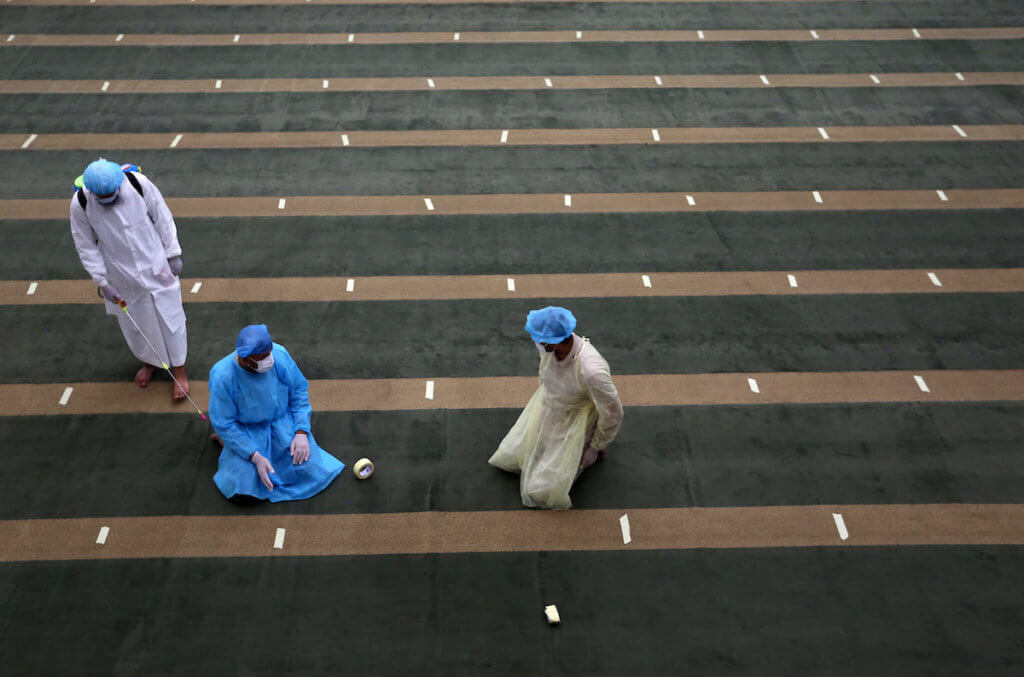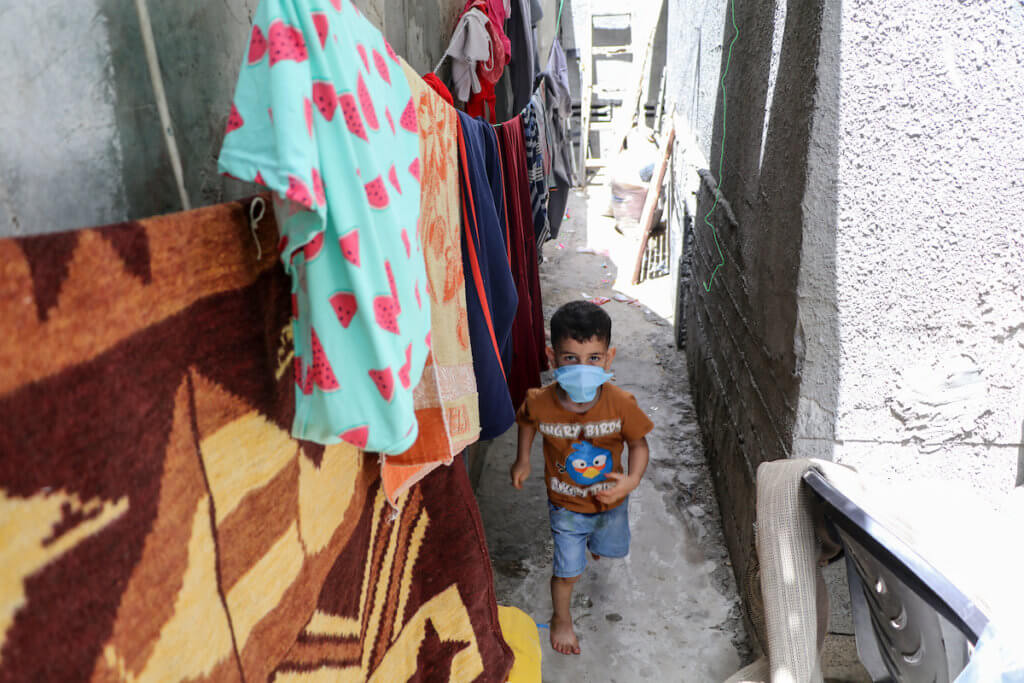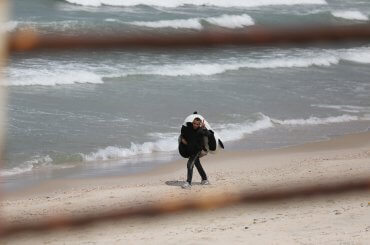A Palestinian child wears a mask as he runs between alleys in Al-Shate’ refugee camp, in the Gaza Strip on May 18, 2020. Photo by Mahmoud Al-Hindi/APA Images
The Latest:
- 602 total COVID-19 cases; 368 in the West Bank, 55 in the Gaza Strip and 179 in Jerusalem
- 16,683 Israelis have tested positive for COVID-19; 279 people have died
- According to a study published by Tel Aviv University, more than 70% of COVID-19 cases in Israel were infected by a strain that originated in the United States
- According to the Palestinian Ministry of Health: since the onset of the pandemic, 45,343 laboratory samples have been tested. At least 30,581 Palestinians are currently in quarantine at home.
After a lull in cases over the previous period this week saw a slight spike in cases of COVID-19, especially in Gaza where the coronavirus had been kept in check until now. 35 new cases have been identified in Gaza, all of which were tied to a group of 1,500 Palestinians who returned to the enclave from Egypt this week. Hamas officials have announced they are considering reinstating a curfew, and the crossing with Egypt has been declared closed until at least the end of June.
An End to Coordination — including on COVID-19?
The big news from Palestine this week was Palestinian President Mahmoud Abbas’s announcement that the PA is leaving all agreements with Israel and the United States over impending Israeli plans (with U.S. support) to annex parts of the West Bank.
Although doubts remain that the PA will actually follow through with this, one main area this declaration would impact is security coordination between the PA and Israel, which remains highly controversial among Palestinians. Initial signs are that the PA might actually be making some meaningful changes, including cutting off ties with the CIA, and according to Reuters, “[pulling] back from some areas of the West Bank that [Palestinian forces] had policed in coordination with Israel during the coronavirus crisis.”
Mosques Preparing to Re-Open After Eid

Palestinian workers disinfect and prepare a mosque for prayer in Khan Younis in the southern of Gaza strip, on May 21, 2020. Photo by Ashraf Amra/APA Images
This weekend marks Eid al-Fitr, the end of the holy month of Ramadan and a time of great celebration. Many Muslims in Palestine celebrating the holiday will need to do from home, but there are signs that many places of worship will be re-opening soon.
The Al Aqsa mosque in Jerusalem has been closed for almost two months, the first time is has been closed in over 50 years. The Jerusalem Islamic Waqf, which oversees the third holiest site in Islam, has announced that they plan to re-open the Temple Mount plaza next week after the Eid celebration. The exact details are still not clear, and it is still unknown whether the al-Aqsa mosque and the Dome of the Rock will be open to worshipers. Still, it’s a small sign life may be heading back to normal.
Our Palestine correspondent Yumna Patel says several mosques in the city of Bethlehem have started to reopen already. Despite a three-day closure to be enforced by the government for the duration of Eid, some mosques, particularly in refugee camps where the police have little to no presence, are planning on opening their doors for Eid prayers.
More heat, less water
Palestine experienced a massive heatwave over the past week, with the heat index rising well above 100 degrees Fahrenheit on most days. Amid the unusually hot weather, and the ongoing coronavirus pandemic, Palestinian officials are accusing Israel of reducing the water supply to the West Bank with no prior warning.
Local media reported that Israel “significantly reduced” the amount of water allotted to the West Bank districts of Ramallah, Nablus, Jenin and Hebron, over the past few days.
Mazen Ghneim, head of the Palestinian Water Authority, was quoted as saying: “We are facing this crisis as we enter the summer season, a time of the year when people are usually in need of more and not less quantities of water. Demand for water is expected to increase by about 30 percent.”
Odds & Ends
? No Thanks: The Palestinian Authority rejected a shipment of coronavirus aid sent by the United Arab Emirates because the shipment was coordinated with the Israeli government. The 14 tons of medical supplies included personal protective equipment and medical equipment, and arrived on Etihad Airways’s first known flight to Israel.
? Save the Date: On June 10, Who Profits will be holding a livestream conversation on securitization and surveillance under COVID-19 in occupied Palestine, with Who Profits research coordinator, Riya al-Sanah and Dr. Nisha Kapoor, an assistant professor of sociology at Warwick university (UK). Register here.


